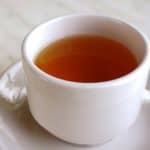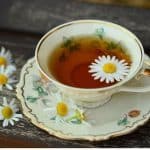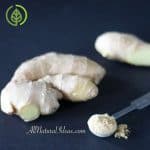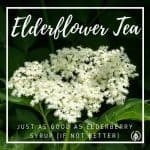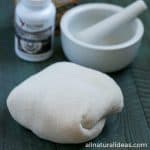Because of their ability to help manage chronic stress, more people are using adaptogenic herbs. Ashwagandha is perhaps most popular among these special herbs. Let’s take a look at ashwagandha benefits and side effects.
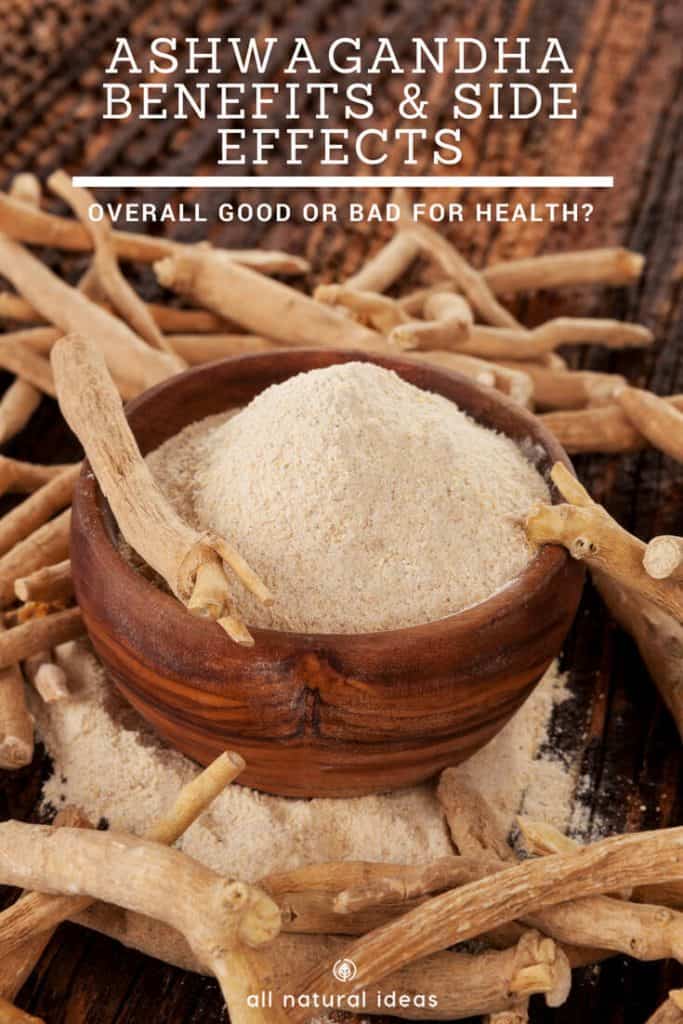
“The Smell of a Horse.” Now how’s that for a marketing name?
Would you buy a supplement that translated from Sanskrit, the ancient language of Hinduism in India, means exactly that?
It turns out, more and more people are buying this adaptogenic herbal supplement, known as ashwagandha.
Will it make you smell like a horse? Is this a side effect of taking it?
Clearly, people into natural health are taking it for a reason. So what exactly are the ashwagandha benefits and side effects?
Benefits of Ashwagandha
Let’s start with the benefits. Historically, Withania somnifera, the botanical name for this herb has been taken to energize the body.
With many people struggling to make it through the work day, it’s easy to see the appeal of this herb–if it indeed works.
Some people also use it as a libido booster. In addition, it may also help you get a restful night’s sleep.
How can it help you sleep better if it’s supposedly an “energizing” herb? We’ll address that herbal paradox shortly.
But first, let’s finish with more benefits of ashwagandha….
Recent research offers some proof that it can regulate the adrenal and thyroid glands. Moreover, it can enhance sports performance and regulate hormones.
Sounds like a magic pill, right? Well, before you decide to take it, let’s get to know it a little better….
What is ashwagandha?
Another couple nicknames for this botanical are more pleasing than “the smell of a horse:”
“Indian Winter cherry” or “Indian Ginseng.”
And just like China has a millenia-long tradition of medicine, so, too, does India. The ancient, traditional healing system in India is Ayurveda.
For perhaps as long as 5,000 years, ashwagandha has been used as a “rasayana” herb.
Think of a rasayana herb as an anti-aging remedy. Ancient Indian healers prepared concoctions of this herb to increase life span.
According to this research article, rasayanas promote a youthful state of physical and mental health and expands happiness.
These days, turmeric seems to be stealing a little of ashwagandha’s thunder. In fact, just a couple years ago, ashwagandha was as high as #7 on Amazon’s best selling supplement list.
However, almost every top-seller these days is turmeric, which is also a prominent herbal remedy in India.
Despite it’s bump from Amazon’s top-seller list, Indian ginseng (which is not really ginseng) is still a popular herbal remedy.
The reason why is likely due, in general, to the growing popularity of adaptogenic herbs, aka adaptogens.
Adaptogens help the body adapt to stress. They do so by regulating levels of stress hormones circulating in the bloodstream.
In India, it’s used as a medicine by mixing a powder of it with water, ghee (clarified butter) or honey.
If you’re concerned about the balance between ashwagandha benefits and side effects, the former wins out.
That’s because to be considered as an adaptogenic herb, it must not be toxic. Remember, even natural substances can be extremely toxic. Take arsenic or lead for example.
Furthermore, adaptogens, by definition, are safe for virtually everybody to take.
Ashwagandha benefits and side effects: will it make you hyper or calm?
Research also suggests it enhances brain and nervous system function and improves memory.
And perhaps those Ancient Indian healers were on to something about the anti-aging properties of the herb. Recent studies show it boosts immunity and protects against free-radical damage.
But this adaptogen seems to be bipolar. On one hand, it can stimulate you. And on the other hand, it has sedating properties, which makes it a popular herb to calm anxiety.
So how do you know how it will make you feel?
The answer is adaptogens seem to possess an innate intelligence. They know what you need and how to make your body regulate itself to put you back in balance.
Because of this action, the herb seems to possess both Yin and Yang properties, to borrow a traditional Chinese medicine concept.
Thus, if you have chronic fatigue, it can help stimulate you. On the flip side, if you have trouble winding down at night, it may help calm your nerves.
In essence, this herb may offer the benefits of both Chinese/Korean ginseng (Panax or Asian ginseng) and American ginseng. The former is more energizing while the latter is calming.
Therefore, it’s not a bad thing that Indian ginseng (only Asian is true ginseng) has a multiple personality.
Ashwagandha for Sexual Health
Perhaps no other botanical solution is more supported by peer-reviewed research for boosting libido than ashwagandha.
Regarded as one of the most potent aphrodisiacs in all the plant kingdom, it can help reignite sexual desire in both men and women.
One research study, published in BioMed Research International suggests it helps libido because it increases testosterone.
Testosterone, the male sex hormone, is often ignored in women’s health. But women need enough testosterone for lean muscle and libido.
And again, if you’re weighing ashwagandha benefits and side effects, the lack of adverse effects suggests that it’s very safe.
As for men, this study says it significantly improves “semen parameters … and regulate[s] sexual hormone levels.”

Ashwagandha for Mental Health
This adaptogen might not only act bipolar, it may actually prevent or even help treat bipolar disorder. This is because it restores the function of the thyroid gland.
[Click here to read an article about the connection between bipolar disorder and thyroid gland dysfunction.]
In this study, researchers examine ashwagandha’s effects on the following three organs: hypothalamus, pituitary, thyroid.
Collectively, these three organs form the “HPA axis.” The HPA axis (the “a” stands for adrenals) controls your stress hormone levels. And when this axis isn’t functioning properly, it can lead to major depressive and bipolar disorders.
The study involves 60 subjects with bipolar disorder. The participants, for eight weeks were given an ashwagandha supplement.
Ashwagandha for Exercise
Another reason why ashwagandha benefits and side effects weigh far more heavily in favor of the former is it can boost strength.
A study published in the Journal of the International Society of Sports Nutrition says it significantly increases muscle mass and strength.
How does it do it? Iit reduces the activity of an enzyme responsible for the breakdown of ATP.
Think of ATP as the chemical inside your cells which creates energy. Or, in simpler terms, think of it as an energy bank account.
When you work out, you’re spending considerable sums of ATP. In essence, this adaptogenic herb replenishes your energy bank account.
In addition, it increases creatinine levels.
You may have heard of creatinine because it’s a popular supplement that bodybuilders take. It’s a natural compound in the body that helps generate more ATP.
Therefore, the more creatinine you have, the more energy you have for your workouts.
And because of its anti-anxiety properties, the herb may, in turn, help you concentrate and focus better.
This study suggests it can boost your cardio fitness levels. Forty 40 elite Indian cyclists for eight weeks supplemented with it.
The group receiving ashwagandha capsules twice a day, demonstrate significant improvement in maximum volume of oxygen (VO2max) and duration until exhaustion on a treadmill test.
In fact, their VO2max increased by 13%. That’s a major boost for competitive athletes.
Unlike anabolic steroids and other performance-enhancing substances, the plant is completely legal.
Another study, this one on hockey players, also demonstrates better sports performance.

Ashwagandha for Better Sleep
A single plant can contain hundreds of compounds. One type of compound isolated from Withania Somnifera are “withanolides”.
The botanical name for ashwagandha is fitting. It translates as ‘sleep-bearing.’
And the reason it can enhance sleep, concludes this study on rats with insomnia, is it stimulates GABA. GABA is a calmness-promoting neurotransmitter.
Ashwagandha root extract
The debate between ashwagandha benefits and side effects seems to be one-sided. To date, there are no reports of serious side effects, other than stomach upset with large doses.
However, as with any supplement, how do you know what’s the best one to take.
How do you know you’re getting the full compound portfolio in the supplement? For this reason, it’s best to use a “full spectrum” ashwagandha root extract. A full spectrum extract preserves the full botanical portfolio, which includes all 35 withanolides that have been isolated.
According to Ixoreal BioMed, one of the most well-known suppliers of the root extract, the highest amount of active compounds come from new roots.
Furthermore, the most active compounds do not come from the plant’s leaves.
Ashwagandha dosage
If you want to take “the smell of a horse’s breath” supplement (so-named because of the root’s scent) the dosage depends on different factors.
Simply following the dosage recommendations of the root extract product will be your best bet. A standard dose of the extract is roughly 500 mg.
Let’s consider the ashwagandha benefits and side effects. The scales tip heavily in favor of the benefits.
And with modern stress levels continuing to skyrocket, this herb will become even more popular.
